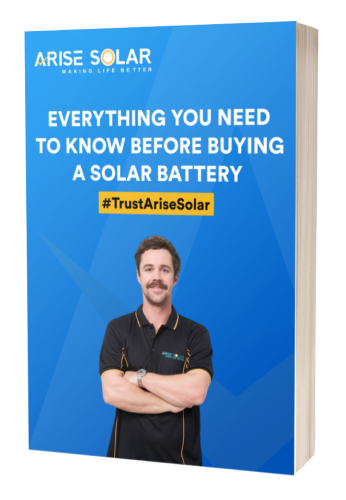Current Macroeconomic scenario is quite considerable. Taking account of the facts like our steeply rising inflation at 6.1% and wages rising only by 2.4% have surely shown huge fluctuations in our household and family budgets. In essence, inflation is the increase in the cost of goods and services. To get the same products you end up spending more. Purchasing power of an average Australian is witnessing slumps. There are several components of a household budget, one of the major one is to be discussed in this article.
Firstly, let us walk through our inflation rates in the past 7 years or so;
| Year | Month | Inflation Rate |
| 2015 | June | 1.5% |
| 2016 | June | 1.0% |
| 2017 | June | 1.9% |
| 2018 | June | 2.1% |
| 2019 | June | 1.6% |
| 2020 | June | -0.3% |
| 2021 | June | 3.8% |
| 2022 | June | 6.1% |
Over the past two years, there has been a significant shift in how we invest and spend our money. We are intentionally adding investment perspective here, as the return on investment, if exceeds inflation, would always be in our favour. And as they rightly say a $ saved is a $ earned. We might need some monetary motivation to help us save more where we can, regardless of our incomes. Here is a brief idea about saving on one of the major components that bites your family and household budget, your power bill. It is noteworthy that this can be done without much of the added efforts and mostly only once.
Consider long term investments
Investing in long term projects that yield results can be a fruitful option. Investing in a solar PV system can be one such investment that results in long term savings on your budgets.
Save Now, Spend Later
Consider investing now but spending later. There are various options available that allow you to pay over a period of time for your investment in small amounts. You can now avoid the immediate costs of installing solar and install it at 0% interest finance options and start saving immediately. This would surely make you Save’n’Pay – You save on your power bills and pay for your solar system. Generally an average solar system on a family home ends up paying itself off within a span of 2.5 years to 4 years.
Monitor your budget and investments
Keeping a track of your budget and investments can be one of the most important tasks to consider. Install a smart solar PV system and monitor your solar system’s performance from your smart devices to learn about your quarterly savings. This leads us to another smart point of using our solar power wisely. Tip: – If you have got solar installed, use your major appliances during the day time, one after the other.
Secure rebates and other government subsidies
You can consider any tax reliefs or government subsidies that you might qualify for and save. It is possible to save on the upfront cost of solar by claiming the government rebate, small scale technology certificates (STCs). Speak to one of our experts at 1300274737 and see if you are eligible for solar rebates. The right time is now as the STCs are reduced every year making the cost of installing solar systems dearer.
Cut your power bills
Power bills have almost risen by 110% in the past one year. This means increasing spending on energy costs due to the energy crisis. Installing a solar PV system can slash your power bills by 50-80% which can reduce the spending on utility bills. (We have customers who have come back and shared their Solar Success Story with us and reported over 86% of savings on their power bills)
So how much does it cost to install solar in Australia?
The solar panel cost for your property is based on various factors like the property location, the type of roof, property phase, number of levels on the property and lastly the brand of solar panels and solar inverter to be installed. Moreover, the cost of solar panels varies with the state. A typical 6.6kW system costs around $3500-$7000 to install in Australia. It is ideal to go for a value for money system from a trusted solar supplier. Also it is quite noteworthy that we need to consider international trade and other geo-political relations as influencing factors to the cost of gear used in solar systems. With the tensions building with nations like China and other issues in European Nations, we may witness an increase in the cost of solar systems anytime soon.
How much does solar save in Australia?
Investing your savings for a higher return than you can obtain in savings accounts is the main strategy for combating inflation. If we talk about the benefits of installing solar the list shall not end, however, one of the reasons why Australians switch to solar is they can save money while contributing to the environment. It might be difficult to estimate the savings you should anticipate from your investment because there are so many variables involved including the roof angle and direction, size of the panels one installs, whether a solar battery is installed or not, etc. so on and so forth. You may genuinely save hundreds of dollars each year by doing this. You could pay minimal energy bills, cut your bills in half, or even by two thirds. Arise Solar experts can help you learn more about your savings and investments related to solar PV systems. Get in touch now!
Analysis of energy consumption patterns
Energy consumption pattern is the amount of energy used and how much energy is used. An average Australian home uses 18kW of electricity per day. Heating and cooling systems, appliances, hot water, lightning and cooking all account for it. If you are considering investing in a solar PV system, you need to analyse your bills and see how much electricity you are using and what time of the day. This shall help determine the size of the solar system needed for your property. However, you do not have to do it all by yourself. Our solar specialists can help you learn and analyse the energy patterns to quote you the right solar system for your property.
Install bigger size system – consider it as an investment
If you have the roof space available, we would recommend installing a bigger solar PV system. Your electricity needs are only going to rise in the future and so are the costs per unit you consume, a bigger system can be beneficial. Consider solar as an investment. In the times where inflation rate in Australia has been highest in the years and energy crisis have a long way to go, solar can save you money and generate an alternative source of income in the long run. Don’t have money to go solar? Don’t worry! We’ve got you covered. With Arise Solar you can get your solar system installed now and pay it off over time availing our flexible financing options. A system that literally pays for itself in savings, it’s never been easier to start reducing your energy costs. Get an obligation free quote now.





